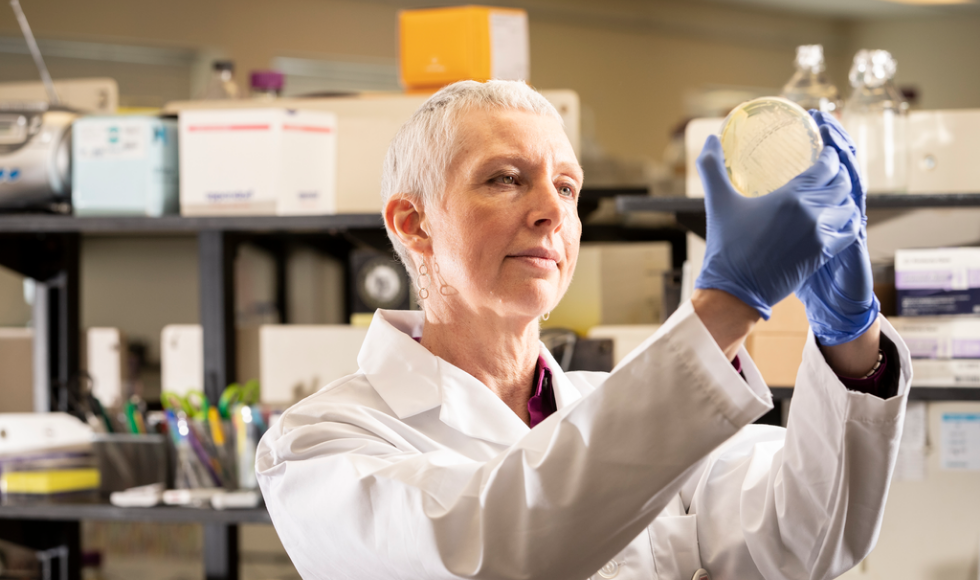In the News: Lori Burrows on the slow-moving pandemic of antimicrobial resistance

Lori Burrows is a microbiologist and professor in the Department of Biochemistry and Biomedical Sciences at McMaster.
BY Andrea Lawson
April 26, 2022
COVID-19 continues to occupy the minds of infectious disease doctors but there’s another public health issue brewing – the growing number of drug-resistant bacteria and the lack of new antibiotics to treat them.
It’s an issue that has the attention of many Canadian researchers, including microbiologist and McMaster professor Lori Burrows, who wrote an op-ed about it in The Conversation Canada last month.
She was interviewed about the issue on CBC Radio’s Day 6.
“There was a report published in 2019, remember this is before COVID, that showed that already more than a quarter of infections in Canada are resistant to the first line of antibiotics,” she said, adding that of 18 new antibiotics approved by the U.S. Food and Drug Administration (FDA) over the last decade, only two were approved in Canada.
Canada is considered a relatively small market by pharmaceutical companies and as such, fewer drugs are introduced and approved here because the return on investment isn’t considered to be there.
“New antibiotics are only sold in very small quantities. Physicians will want to reserve them for the most drug-resistant infections. The unique thing about antibiotics is the more you use them, the more likely bacteria are to develop resistance to them,” Burrows explained.
For severe infections that are resistant to all our newer antibiotics, doctors turn to older drugs because they don’t have another choice. These drugs, which were developed years and even decades earlier, tend to have more toxic side-effects.
Decisions like this can end up costing us billions in healthcare costs, with people returning to doctor’s offices because of ineffective treatment and longer hospital stays as physicians try to sort out infections.
We must think of antibiotics as a public or social good, said Burrows.
“Once bacteria become resistant that impacts everybody who subsequently gets infected with that organism,” she said.
Some countries are now considering incentivizing manufacturers to bring new antibiotics into their countries. This is what happened with COVID. Countries guaranteed manufacturers of vaccines and COVID medications that we would pay for those medications as soon as they were ready to go.
“In the background of this COVID pandemic, is this slow-moving pandemic of antimicrobial resistance and it’s not going to go away,” she said.
“It’s only going to get worse if we don’t pay attention to it. Developing a new antibiotic or new type of treatment can take ten to 20 years so we need to be thinking about this now so we’re protected in the future.”


